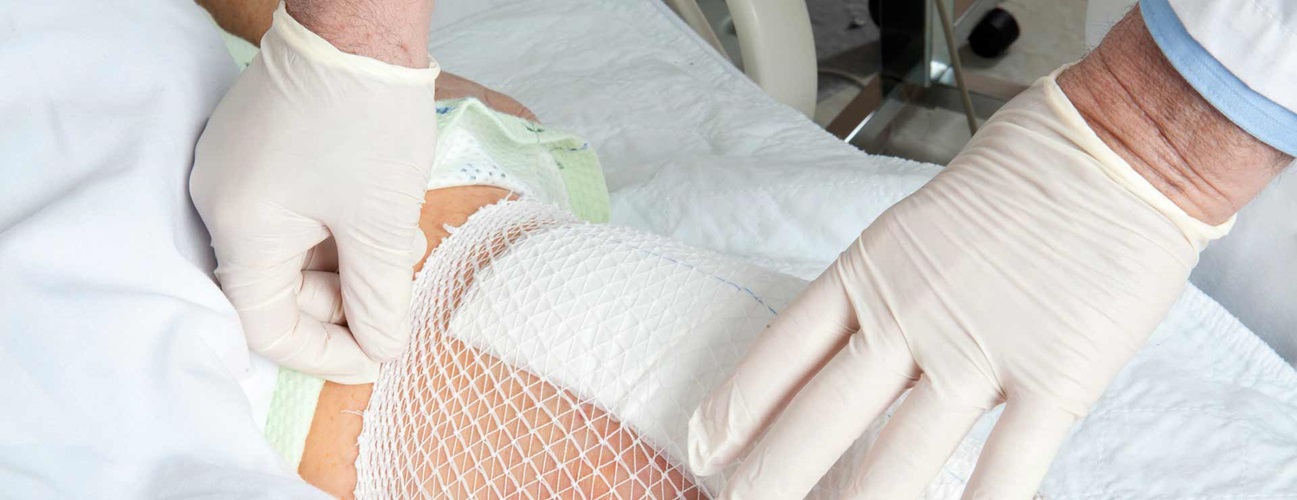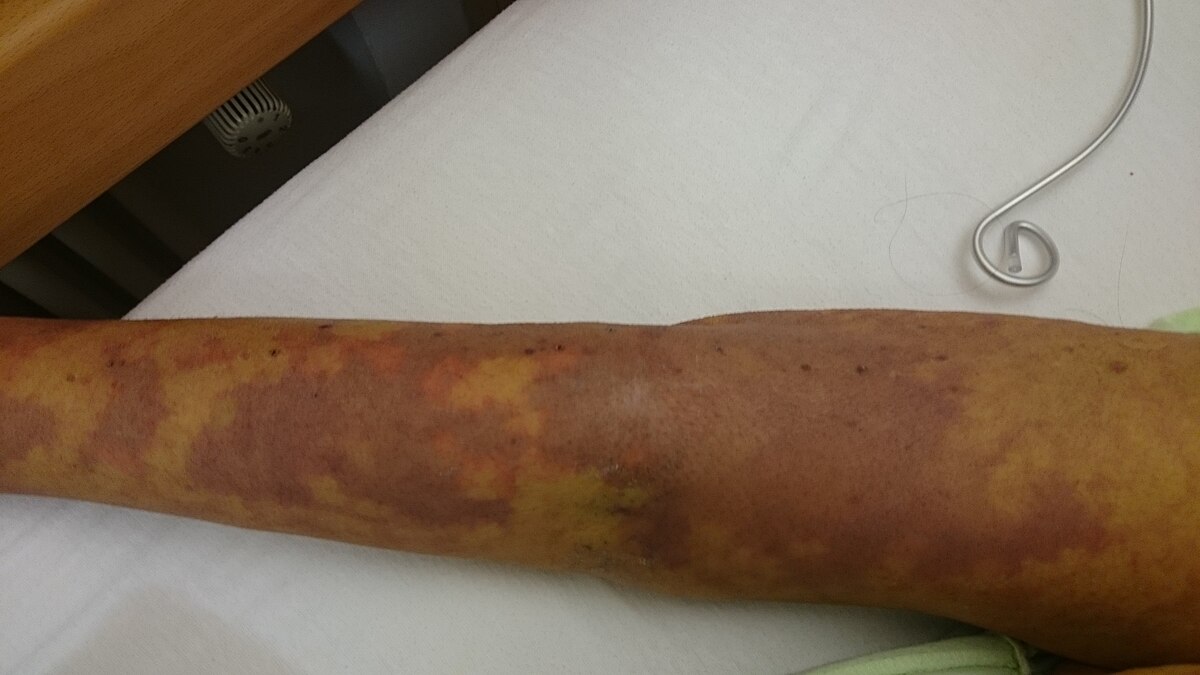AB Science SA (Euronext - FR0010557264 - AB) today announced that the Phase 2B/3 study (AB09004 - NCT01872598) evaluating oral masitinib in patients with mild and moderate Alzheimer’s disease met its predefined primary endpoint.
Study AB09004 was an international, randomized, placebo-controlled, phase 2B/3 study evaluating different doses of masitinib as a treatment of patients with confirmed mild to moderate Alzheimer’s disease. This study compared the efficacy and safety of masitinib relative to placebo after 24 weeks of treatment when administered as an add-on therapy to cholinesterase inhibitor (donepezil, rivastigmine or galantamine) and/or memantine. Two doses of masitinib were tested, masitinib 4.5 mg/kg/day and a titrated dose of masitinib from 4.5 to 6.0 mg/kg/day, with each dose having an independent control arm.
The study demonstrated that masitinib 4.5 mg/kg/day (n=182) generated a significant treatment effect compared with the control arm (n=176) on the primary endpoint of change from baseline in the Alzheimer's Disease Assessment Scale-Cognitive Subscale (ADAS-Cog), an instrument that measures the effect on cognition and memory (p=0.0003). The study also demonstrated that masitinib 4.5 mg/kg/day generated a significant change from baseline in Alzheimer’s Disease Cooperative Study Activities of Daily Living (ADCS-ADL) score, an instrument that assesses self-care and activities of daily living (p= 0.0381).
There were significantly fewer patients reaching severe dementia stage (MMSE<10) with masitinib 4.5 mg/kg/day compared with placebo after 24 weeks of treatment (p-value= 0.0446).
The safety of masitinib 4.5 mg/kg/day was acceptable and consistent with the known tolerability profile for masitinib:
79.5% of patients had at least one adverse event in the masitinib arm versus 74.6% in the control arm 5.9% of patients had at least one serious adverse event (non-fatal) in the masitinib arm versus 2.9% in the control arm 18.9% of patients had at least one severe adverse event in the masitinib arm versus 16.8% in the control armThe top-line results will be further discussed during a live webcast with Key Opinion Leaders to be held on Thursday December 17, 2020 from - 11am-12am EST.
A new patent was filed based on results from study AB09004. Said patent, if granted, would permit AB Science to retain exclusive rights on the use of masitinib in Alzheimer’s disease until 2041.
Bruno Dubois (MD, PhD), Professor of Neurology at the Neurological Institute of the Salpétrière University Hospital at Paris in France and coordinating investigator of study AB09004 said, “There is a vacuum of treatment options for patients with Alzheimer’s disease and today very few attempts to address the population with confirmed mild or moderate dementia associated with Alzheimer’s disease. These data are very encouraging and may provide new hope for patients with Alzheimer’s disease. The fact that masitinib could significantly reduce the proportion of patients reaching the stage of severe dementia (MMSE<10) is particularly interesting because this stage of the disease represents a significant burden for the society”.
Philip Scheltens (MD, PhD), Professor of Cognitive Neurology and Director of the Alzheimer Center at the VU University Medical Center in Amsterdam said, “Results from study AB09004 are refreshing as they provide a radically new approach for the treatment of Alzheimer’s disease, and are extremely promising, in particular considering the robustness of the effect observed on cognitive function. I am eager to support AB Science’s endeavor to address such a devastating disease.”
Jeffrey L. Cummings, M.D., Director of the Chamber-Grundy Center for Transformative Neuroscience at UNLV in Las Vegas said “The preliminary results from this study support efficacy on important outcomes assessing both cognition and function. The observed patient tolerability is encouraging. Masitinib’s mechanism is novel in its targeting of the innate immune system via mast cells and microglia. A growing body of evidence suggests that microglia play a central role in Alzheimer’s disease and other neurodegenerative disorders.”
Prof. Olivier Hermine (President of the Scientific Committee of AB Science and member of the Académie des Sciences in France) said, “This positive result in Alzheimer’s disease further validates the mechanism of action of masitinib in neurodegenerative diseases [1,2]. Indeed, this is the third evidence delivered by the masitinib in neurology. The first two pieces of evidence were the positive Phase 2B/3 studies with masitinib in amyotrophic lateral sclerosis (ALS) and in progressive forms of multiple sclerosis [3,4]. These three studies clearly demonstrate that targeting the innate immune system including macrophage/microglia and mast cells, through inhibition of tyrosine kinases as masitinib does, is a valid strategy to treat neurodegenerative disorders. This is a true innovation that justifies the long-term efforts from AB Science to develop masitinib in ALS, progressive forms of MS, and Alzheimer’s disease.”
Alain Moussy, co-founder and CEO of AB Science said, “Neurodegenerative diseases, taken together, represent a huge unmet medical need. We are determined after this third positive study, this time in Alzheimer’s disease, to continue developing masitinib in consultation with health authorities up to registration, in amyotrophic lateral sclerosis, progressive forms of MS and Alzheimer’s disease.”
AB Science plans to present detailed study results at an upcoming medical meeting.
Phase 2B/3 study design
Study AB09004 was an international, randomized, placebo-controlled, phase 2B/3 study evaluating masitinib as a treatment of patients with confirmed mild to moderate Alzheimer’s disease.
The study enrolled patients having the following main inclusion criteria:
Patient with dementia of Alzheimer's type, according to the Diagnostic and Statistical Manual of Mental Disorders criteria (DSM-IV) Patient with probable Alzheimer' disease according to the NINCDS-ADRDA criteria (National Institute of Neurological and Communicative Disorders and Stroke and the Alzheimer's Disease and Related Disorders Association) Patient with MMSE ≥ 12 and ≤ 25 at baseline Patient treated for a minimum of 6 months with a stable dose of cholinesterase inhibitors (donepezil, rivastigmine or galantamine) at baseline, and/or a stable dose of memantine for a minimum of 6 months at baseline, with no changes foreseen in therapy throughout the study.This study compared the efficacy and safety of masitinib after 24 weeks of treatment when administered as an add-on therapy to cholinesterase inhibitor (donepezil, rivastigmine or galantamine) and/or memantine, to placebo as add-on to cholinesterase inhibitor and/or memantine.
Two doses of masitinib were tested, masitinib 4.5 mg/kg/day and a dose titration from masitinib 4.5 to 6.0 mg/kg/day, each dose having its own control arm.
The study was successful if its primary objective to test a significant improvement was reached at a 2.5% level of statistical significance on either ADAS-Cog or ADCS-ADL. That is to say that the Alpha spending was split between ADAS-COG (2.5%) and ADCS-ADL (2.5%), and that the study was successful if the treatment effect was established in at least one of the two primary endpoints at 2.5% level of statistical significance. Type I error was controlled at interim by the Haybittle-Peto alpha spending method. If at interim p-value was superior to 0.001, then the final analysis and efficacy criteria at final analysis was to be tested at 2.499% level for each of the primary endpoints. For the primary analysis, as per guideline, missing values were imputed not based on Last Observation Carried Forward (LOCF) method but by using imputation model based on the patient’s previous non-missing score and data from other similar patients (same cluster) that continued treatment. The Jump to Reference approach, which is the most conservation approach, was used as a sensitivity analysis. This methodology imputes the Placebo estimates for all patients who prematurely discontinue due to lack of efficacy and toxicity (related TEAE) in the treatment arm.
The study enrolled 718 patients.
Previous establishment proof of concept
As a reminder, proof of concept for the evaluation of masitinib in Alzheimer’s disease was established through a 35-patient, double-blind, placebo-controlled phase 2 study. In this study, the rate of clinically relevant cognitive decline, according to the primary endpoint, ADAS-Cog response (increase > 4 points), was significantly lower with masitinib treatment compared with placebo after 12 and 24 weeks (6% versus 50% for both; p=0.040 and p=0.046, respectively). Moreover, while the placebo treatment-arm demonstrated worsening mean ADAS-Cog, ADCS-ADL and MMSE scores, the masitinib treatment-arm reported improvements with statistical significance between treatment-arms at weeks 12 and/or 24 (respectively, p=0.016 and 0.030; p=0.035 and 0.128; and p=0.047 and 0.031). Adverse events occurred more frequently with masitinib treatment (65% versus 38% of patients); however, the majority of events were mild or moderate and transient. The phase 2 results were published in Alzheimers Res Ther. 2011 Apr 19;3(2):16. doi: 10.1186/alzrt75.
Scientific rationale
The potential therapeutic benefit of masitinib in Alzheimer’s disease is linked to two possible mechanisms of action: the role of mast cells in neuroinflammation and regulation of the blood-brain-barrier (BBB) permeability; and the inhibition of the protein kinase Fyn, which is involved in amyloid-beta signaling and tau phosphorylation.
Neuroinflammation is thought to be a major contributor in the pathogenesis of Alzheimer's disease1,2,3. Mast cells release large amounts of proinflammatory mediators and therefore play an important role in sustaining the inflammatory network of the central nervous system. Furthermore; mast cells are found on both sides of the BBB and also have the ability to rapidly cross the BBB, thereby increasing their numbers in response to physiological stimuli. Given that the neural pool of mast cells is influenced by their ability to rapidly cross the BBB, inhibition of mast cells peripheral to the BBB could impact upon neurodegenerative disease outcome. Therefore, masitinib could be an effective drug in Alzheimer's disease because it blocks mast cells through the inhibition of the tyrosine kinases c-Kit and Lyn.
In addition to blocking mast cell activity, masitinib may exert an effect through its inhibition of the tyrosine kinase Fyn4,5,6. Alzheimer's disease is associated with the pathological aggregation of amyloid-beta (A-beta) plaques and tau-positive neurofibrillary tangles. Several lines of evidence implicate Fyn in the pathogenesis of Alzheimer's disease through its dual role in A-beta signaling and tau phosphorylation. Masitinib, by inhibiting Fyn, could possibly disrupt the A-beta signaling cascade and modulate the phosphorylation of tau protein, thus and preventing neurofibrillary tangles.
Targeted population
The meta-analysis of epidemiologic studies indicates that between 5 and 10 million people suffer from Alzheimer’s disease in the USA and Europe. Alzheimer’s disease is the most common type of dementia among western countries, corresponding to about 60% of cases. Alzheimer’s disease is already the sixth leading cause of all deaths in USA and the fifth leading cause among Americans over 65 years of age.7,8,9 Worldwide, it is thought that there are more than 15 million people affected by Alzheimer’s disease.8
Currently, there are only five products approved for the treatment of Alzheimer’s disease, four of which belong to the pharmacological class of anticholinesterases, the fifth being an NMDA inhibitor. Therefore, this remains an area of significant unmet medical need. Masitinib may be unique by being both a symptomatic and a disease modifier treatment.
References
[1] Skaper SD, et al. Immunology. 2014 Mar;141(3):314-27. doi: 10.1111/imm.12170.
[2] Silver R, et al. Trends Neurosci. 2013 Sep;36(9):513-21. doi: 10.1016/j.tins.2013.06.001.
[3] in't Veld BA, et al. N Engl J Med 2001;345:1515-21. doi: 10.1056/NEJMoa010178.
[4] Nygaard HB et al. Alzheimers Res Ther. 2014 Feb 5;6(1):8. doi: 10.1186/alzrt238.
[5] Yang K. et al. J Alzheimers Dis. 2011;27(2):243-52. doi: 10.3233/JAD-2011-110353.
[6] Lee G, et al. J Neurosci 2004; 24:2304-2312. doi: 10.1523/JNEUROSCI.4162-03.2004
[7] Rizzi L, et al. Biomed Res Int. 2014;2014:908915. doi: 10.1155/2014/908915.
[8] Launer LJ, et al. Neurology. 1999 Jan 1;52(1):78-84. doi:10.1155/2014/908915.
[9] Weili Xu et al. Epidemiology of Alzheimer’s Disease, Understanding Alzheimer's Disease. 2013.doi: 10.5772/54398

 MASITINIB DEMONSTRATED SIGNIFICANT EFFECT ON BOTH COGNITION, MEASURED WITH ADAS-COG, AND DAILY ACTIVITY, MEASURED WITH ADCS-ADL
MASITINIB DEMONSTRATED SIGNIFICANT EFFECT ON BOTH COGNITION, MEASURED WITH ADAS-COG, AND DAILY ACTIVITY, MEASURED WITH ADCS-ADL




.jpeg)








.png)





.jpeg)

.jpeg)
.jpeg)

.jpeg)


.jpeg)



.jpeg)
.jpeg)
.jpeg)


.jpg)


.jpeg)
.jpeg)